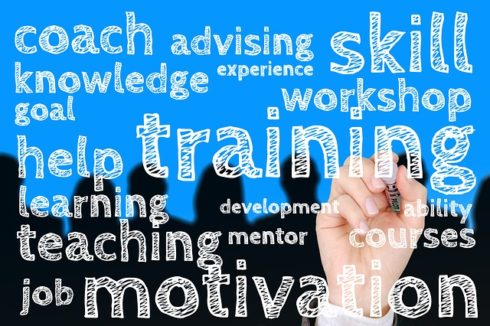
“We’re a lot stronger than you say we are…and you know it, don’t you?” – A Bug’s Life
Much to my children’s dismay, I ask that they sit down with me once every year or so to rewatch the 1998 movie, A Bug’s Life, in hopes that they’ll one day share my unpopular opinion that it’s Pixar’s finest. In the film, a large colony of overworked, under-appreciated ants are up against an impossible deadline to double the amount of their annual seed harvest. This deadline is given by a small but powerful group of cruel grasshopper overlords who threaten the ants with great harm if they fail to deliver the harvest on time.
*Spoiler alert* (though, this is a 21 year-old film, I think I’m outside of the statute of limitations): Flik, a single ant, who has had enough of the grasshoppers’ inhumane treatment and unrealistic demands and expectations, delivers the powerful line above to the leader of the grasshoppers after being beaten down one too many times.
After witnessing this act of bravery, the rest of the colony realizes that Flik is right. Enough is enough, and the only acceptable means to future coexistence is for the grasshoppers to be removed from power, and then replaced by the resourceful, hard-working, innovative, and compassionate ant colony.
And, after I witnessed similarly impassioned speeches last week at STARWEST 2019, I get the feeling that we’re on the cusp of a similar movement by the software testing community.
This isn’t to say that all testers find themselves under violent dictatorships like the ant protagonists in A Bug’s Life, nor am I claiming the grasshoppers are a clear metaphor for any other department or management tier within an organization. But where in conferences past I’ve seen very helpful and worthwhile presentations on how testers can gain respect, appreciation, and a seat at the table, the mood this year was different. So many of the speakers and sessions this year seemed to convey a message of: “Now is not the time to settle for ‘fitting in,’ or ‘being considered ‘part’ of the team. It’s time to lead.”
QualityWorks Consulting Group CEO/Founder Stacy Kirk expressed this exact sentiment with her outstanding conference opening keynote, “QADevSecOps: Leading a Quality-Driven DevOps Transformation.” Leading. Kirk shared that she’d had the same feeling as many testers when they first learned of this new “DevOps” everyone was starting to talk about, saying, “DevOps marginalized us. When I first heard it, I thought, ‘Here we go again, testing was left out.’ ” As this feeling grew within the testing community, plenty of people came forward with great ideas for how testing could convince development, operations, and management to make sure testing wasn’t truly being left out of the equation.
While plenty of those departments came back with little more than “Well, obviously we’re still going to test the software,” what they failed to grasp was how challenging, or even impossible that might be. Testers were already strapped for time in the rise of agile to perform the amount of testing they knew was necessary; how were they supposed to feel against a DevOps edict of even faster release cycles, and even shorter windows to test within them?
Does the story of ants being expected to harvest twice as much food in half as much time, without any additional resources, and being given only an incentive of “…or else,” sound familiar, testers?
Kirk made brilliant metaphors comparing the powerful qualities of popular superheroes with those of today’s software testers that clearly resonated with the crowd at STARWEST. She described Tony Stark’s innovation, automation, and continuous improvement of the Iron Man suit; Dr. Bruce Banner’s passionate, data-driven analysis of difficult problems; and Wonder Woman’s empathetic and diplomatic lifelong search for the truth. But as she rattled them off, I was left wondering, “If the rest of an organization was just as aware as we all are that all great testers possess these characteristics, would testing have ever been left out of any transformation in the software industry?”
One superhero noticeably absent from Kirk’s presentation was Batman, the brooding, cave-dwelling, misunderstood, nocturnal crusader who does his best to keep his true identity a secret. In the film The Dark Knight, Gotham police commissioner Jim Gordon beautifully describes his city’s complex dependencies on Batman by stating:
“He’s the hero Gotham deserves, but not the one it needs right now. So we’ll hunt him. Because he can take it. Because he’s not our hero. He’s a silent guardian, a watchful protector.”
Perhaps the leadership that Kirk and other STARWEST speakers were advocating for will be assumed once testers bring their unmatched, invaluable qualities out of the shadows, and in front of those who’ve underestimated their strength for far too long.
If testers follow the advice and encouragement shared by those at STARWEST, more will know their strength and superpowers soon enough. They’ve been watchful. They’re about to be heard





